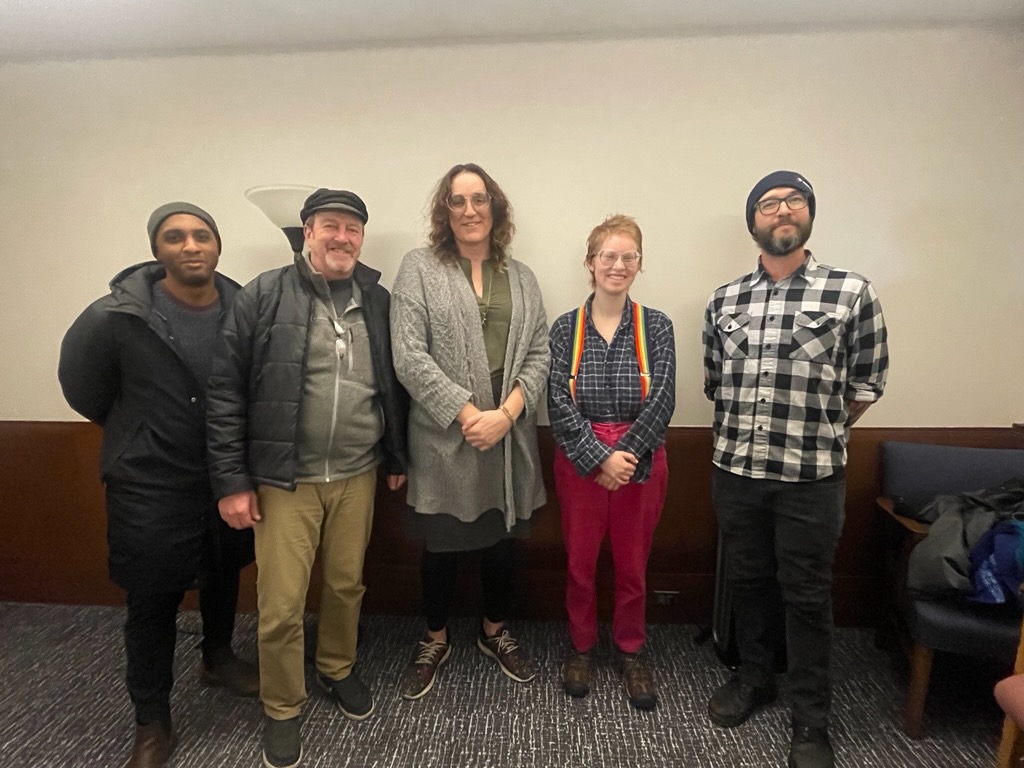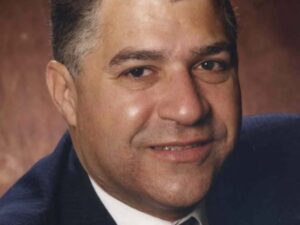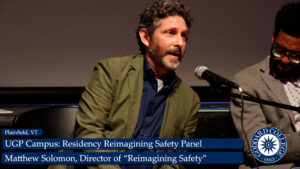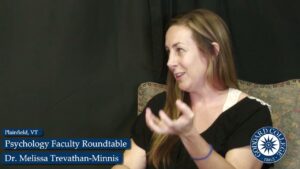
Transformative change practitioner.
This succinct bio from his LinkedIn profile describes what drew Maanav Thakore (BA EDU ’05) to Goddard College.
It is also a thread that runs through his life’s work: in an adolescent group home in Colorado and an afterschool program in Minneapolis, as a musician in New Orleans, then a community organizer and highly sought-after intersectional racial justice trainer in Boston, where he lives today. In his current position as Deputy Director of the National Network of Abortion Funds, Thakore works to remove logistical and financial barriers to access to abortion.
Pursuing an integrated life and work, it nevertheless took Thakore a while to find the right educational fit. Before Goddard, he found two previous institutions restrictive and wanting. It was in 2002 that Thakore came to a crossroad when his best friend and musical collaborator, an immigrant from Africa, was tragically murdered in a race-related incident.
Thakore remembers, “That’s when my life took a radical shift in needing to devote it to working for racial justice and systems change. After that, I came to Goddard, a place where a student could stretch out intellectually, experiment, be in community while also living one’s life. I could connect these different pieces of past experience together and start creating a path for myself.”
Thakore recalls one particular advisor, the late Dr. David Frisby. “He was one of the few Black faculty members then and had decades of experience in systems change work, cutting his teeth during the time of Brown vs. Board of Education. Doc Frisby was the perfect mentor for me at the perfect time. I didn’t feel like I’d been seen by many of the educators I’d worked with previously. I felt like Doc Frisby understood me; he saw me. I felt valued by him. And that was the galvanizing force for me during my time at Goddard.”
Today, Thakore continues the work cultivated by his education at Goddard. He thinks about our present moment as a country: “What is being asked of us as people who are thinking about what it means to be alive in this time? What does it mean to be looking critically at systems and recognizing that we’re a part of these systems? It’s incredibly important for all people in this country who care about social progress and justice, and especially institutions, to reconcile with the history of racism and, in particular, anti-blackness. So, as a person who does this work, it’s important for me to know and to be clear about who I am and where I’m coming from.”
Thakore believes that training is a critical, but often poorly executed, component of addressing systemic racism. “It’s the first step, step zero even. But it’s not the solution. Solutions become a long-term commitment to exploring organizational culture and policies—from learning how to normalize conversations about identity and power, tracking data that shows the whole picture, to taking concrete action steps towards fairness.”
Being of South Asian ancestry and having racially ambiguous features, Thakore lives the complexities of identity, power, and privilege. “I’ve been falsely arrested at least five times over the last 10 years. I’ve been pulled off flights, but I also have privileges. I’ve been put in the jail cell, but I’ve also had the resources to get out of the jail cell. This is what also compels me to do this work, because others do not have the resources. People need to have the ability to see nuance. We need to have more complex understandings of our identities.”
As a Senior Trainer on Racial Justice & Health Equity for the Boston Public Health Commission from 2011-2013, Thakore worked to do just that and to help 1,400 city health employees (nurses, paramedics, homeless shelter workers, etc.) see their work through the lens of racial justice and health equity. Thakore led a team of 21 rank and file public health employees who were trained to facilitate workshops for their co-workers across the organization. Over a two-year period, city health workers got training on core concepts, racial policy history, the legacy of race and racism, and what role their organization can play to dismantle it, and action planning.
“It was a transformative experience. To be able to train employees, at their jobs, many of whom did not want to be there, and to have an effective conversation about something so hot-button as race and racism, was eye-opening. It helped me to understand that these conversations are often divisive but, when designed well and facilitated skillfully, they’re actually unifying. The problem is that a lot of us don’t know how to have these conversations and lack the skills to facilitate them.”
Thakore can personally relate. “Talking to anyone in a position of power about a system is like talking to a fish about water. Similarly, as a man, it took many years of friends, loved ones, and partners telling me their stories to really see how pervasive sexism is. I didn’t see it as my responsibility. I didn’t see it as my work. People think that the work of racial justice is people of color’s work, when it’s actually white people’s work. Racism could end tomorrow if white people decided that they didn’t want it anymore.”
Are more white people deciding just that? With the arduousness of the past few years, and many exercising a newfound license to express and act on their racism, could there be an upside?
“I would never say ‘yes’ but I think, the silver lining, if there is one, is that all of the people who have been hesitant to really do the work—people who run institutions, non-profit organizations, etc.—recognize now what people of color have been saying for so long. So that has felt like an opening.”
This article was written by Julie Parent (MFAW ’05) and originally published in Clockworks Magazine in 2018.
Seeking transformative change in your life and work? Find out how Goddard leads you down the path of your own design, with faculty advisors who guide the work and reflection you bring from your own community. Make an inquiry with an admissions councilor today.







